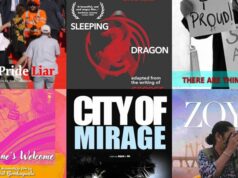When there are problems with the world there are those who muddle through and then there are those who feel driven to change things for the better. Cary Rajinder Sawhney MBE is currently busy with the latest editions of two unique film festivals in London this month which aim to improve life for both the BAME and LGBTQ communities.
Cary is the Founder of Brixton Reel Film Festival which reaches out to the BAME community but he is also the Executive and Programming Director at the Bagri Foundation London Indian Film Festival which showcases the best of South Asian cinema with strong support for LGBTQ movies and filmmakers.
The 10th Edition of the Brixton Reel Film Festival, supported by its community partners Thrive LDN and Lambeth Council, has started amidst a global pandemic. Its annual programme of entertaining films and arts events helps a variety of ethnically diverse London communities explore the issues of mental health and wellbeing, coming at a time where the need for such a project is more vital than ever.
After a successful virtual Festival earlier this year, the London Indian Film Festival (LIFF) is also having a mini Festival ‘A Slice of LIFF’ between the 17th to 20th September at the BFI Southbank NFT1, Cinema Lumiere in London and Birmingham, the details of which will be confirmed shortly.
Keeping it reel
As an Indian-origin Filmmaker and Festival Director, Cary feels passionately about how film and the arts in general can be used to reach out to communities which would otherwise feel excluded. “The Brixton Reel Film Festival was started over ten years ago to provide mental wellbeing outreach to the cities BAME communities, who weren’t getting the support they needed in terms of awareness of mental health issues and services available to them” says Cary.
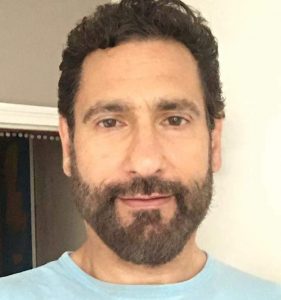
“Also the mainstream NHS services of the time had less awareness of the culturally specific needs of these communities, especially the smaller minority communities such as Latinx LGBTQ+, or Portuguese Madeiran communities. Other communities were understandably untrusting of mental health services such as the African-Caribbean communities as a number of Black men had died in UK mental health hospitals.”
“In many communities mental health is of course a difficult subject to broach so we innovatively used free, culturally specific, film premieres and arts performances to attract people to our events and when they were there, then talk about mental wellbeing. This proved a very successful formula. Standard NHS health promotion pathways weren’t getting anywhere near these numbers, so we got the job!” says Cary.
The Festival’s free mental health outreach events and screenings have expanded to ever more ethnic communities. “We were able to identify the level of need at a time when in some cases there was no awareness of particular communities”, says Cary. “For example, when we highlighted the need, the NHS could find no commissioned research on Black LGBTQ+ communities and mental health and it was clear from our community outreach work in Vauxhall that especially Black Transgender people were coming to socials and then disappearing, the LGBTQ+ communities believed it was due to suicide. This wasn’t on the radar.”
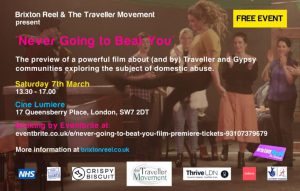
“Over the years we now have outreach events with Latin American, Latinx LGBTQ+, Somali, Ethiopian, Gypsy-Traveller, Asian, Asian LGBTQ+ as well as African-Caribbean communities. Our small team find it relatively easy to work with people from a bottom up approach – building relationships ahead of organising events rather than the traditional top down approach – telling people what’s good for them. I learned to do this early on in my film festival work in terms of building community support in cities like Bradford, Birmingham and London.”
Cary tells of how such community relations open doors and create sustainable relationships with these communities that had previously been unreachable. “The feel good factor for me is that we know we are using film and arts to help change people’s lives for the better. It’s wonderful at the end of our screenings when people come up to us and say “Thank you that really helped, or made me think about how I feel”, “I will practice the 5 Ways to mental wellbeing”.
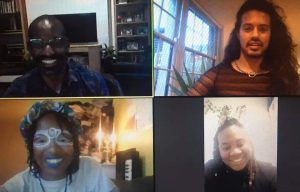
The Brixton Reel Film Festival has a webpage to keep people up to date with the latest events that it’s running and also has advice for dealing with life during COVID-19: Brixton Reel Film Festival webpage but it also has a Facebook page BRFF Facebook page and Twitter feed @BrixtonReel
The importance of mental health
The Brixton Reel Film Festival is now in its tenth year and still helping build bridges, but the potential of the festival was apparent right from the early years. “It was very powerful and once people were in the room for these free events, they came to learn about how to look after their mental wellbeing,” says Cary.
“For example. the five things about mental wellbeing that the NHS promoted by the NHS that helps build psychological wellbeing around them, for those times when you are depressed – you can refer back to these and actually kick yourself out of it, by remembering them – so very effective.”
For more information about mental health head to www.nhs.uk/conditions/stress-anxiety-depression/improve-mental-wellbeing/. But the core of the message is to follow the five steps that Cary alluded to were: Connect with other people, Be physically active, Learn new skills, Give to others, Mindfulness
The future looks bright
It’s not just BAME communities and mental health that Cary wants to raise awareness and empowerment of through film, carrying on from his former role as Head of Diversity at the British Film Institute he’s also dynamically involved in Human rights and equality and has platformed films withLGBTQ issues, helping to stigmatise these issues particularly in the Asian communities. Being Programme Director for the London Indian Film Festival gives him a great opportunity to do just that. “LIFF has premiered some of South Asia’s best LGBTQ+ films, years before Section 377 was abolished in India” he proudly says.
“It is great to have these stories that are new and previously un-told and push the boundaries, especially in India. LGBTQ+ themes are now being covered by high profile filmmakers in India and even acted mainstream Bollywood stars. In India when things change, they change dramatically”, chuckles Cary.
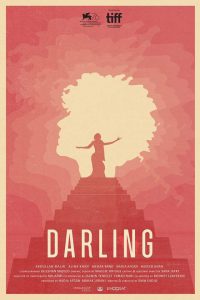 He says one of the challenges for LGBTQ+ films worldwide is the lack of opportunities for these films to pick up distribution. The trouble is globally the dedicated LGBTQ+ market is shrinking and currently LGBTQ+ distributors are not picking up as many film titles, however on the positive side more LGBTQ+ stories are making their way into mainstream online platforms, confirms Cary.
He says one of the challenges for LGBTQ+ films worldwide is the lack of opportunities for these films to pick up distribution. The trouble is globally the dedicated LGBTQ+ market is shrinking and currently LGBTQ+ distributors are not picking up as many film titles, however on the positive side more LGBTQ+ stories are making their way into mainstream online platforms, confirms Cary.
The quality of these films is undeniable, he says, for example three out of the eight short films in this years Satyajit Ray Film Competition had LGBTQ themes with a heterosexual judging panel choosing the Transgender Pakistani film ‘Darling’ was the winner.
Times have certainly changed. “When I was first going around to the Mumbai film industry about fifteen years back, people would keep saying ‘Oh, you are a Gay?’. It was clearly a derogatory term, the occasional micro homophobia was uncomfortable, but I had to deal with it as an ‘Out’ Gay man. But now the reactions have changed completely for the positive. At least in the film industry it’s less of a big deal. Cary ends positively.
Mini-LIFF

After a successful virtual Festival earlier this year, the London Indian Film Festival (LIFF) is also having a mini Festival ‘A Slice of LIFF’ between the 17th to 20th September at the BFI Southbank NFT1, Cinema Lumiere in London and Birmingham, the details of which will be confirmed shortly.
Cary promises future festivals are likely to always be hybrid, offering some movies through their virtual platform and many in with their regular cinema partners. There will be 6 amazing U.K. premieres launching at cinemas from 17th September, starring sheroines like Vidya Balan and Tannishtha Chatterjee. You can book your socially-distancing cinema seats for the BFI Southbank and Cinema Lumiere. Numbers will be strictly limited to ensure safety.
You can find more information on: www.londonindianfilmfestival.co.uk
Smita is a multi-cultural freelance journalist, writer, and filmmaker based out of the US, London, Hong Kong, and India. Global Indian Stories is her brain-child. Created to chronicle diaspora stories written by Indians of all age groups, from different walks of life across the globe, Smita makes sure that the platform remains inclusive and positive.



